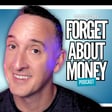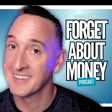
🏦 The Perfect Passive Portfolio for Early Retirement, 2025 Tax Changes, and Time Travel! 🕰️
🛠️ What does it take to build the perfect portfolio for early retirement? In this episode, we explore tax-efficient investing, real estate vs. index funds, and even throw in a fun twist with time travel!
Watch and Subscribe on YouTube
🌟 Whether you're planning for financial independence or navigating changes in 2025 tax laws, this episode is packed with actionable insights, debate, and a little imagination.
In this episode, we discuss:
1️⃣ Designing the Perfect Passive Portfolio: The role of index funds like VTSAX in early retirement.
2️⃣ Real Estate vs. Index Funds: Which is better for financial independence?
3️⃣ Tax-Efficient Contributions: How to maximize Roth IRAs, 401(k)s, HSAs, and taxable accounts.
4️⃣ Withdrawal Strategies: Optimizing portfolio withdrawals to minimize taxes in retirement.
5️⃣ 2025 Tax Changes: What the upcoming laws mean for retirees and early retirees.
6️⃣ Social Security and Early Retirement: Planning around potential tax-free benefits.
7️⃣ Time Travel Reflections: A lighthearted look at history, nostalgia, and financial foresight.
🔗 Sean’s Links:
📘 JL Collins’ Book The Simple Path to Wealth
🔗 Carla’s Links:
🎙️ Estate Planning with Sean Mullaney on Mile High FI Podcast
🔗 David’s Links:
💡 The Perfect Passive Portfolio for Early Retirement
🍏 Forget About Money on Apple Podcasts
🎧 Forget About Money on Spotify
#passiveincome #financialindependence #taxplanningtips #seanmullaney
🎧 Listen & Subscribe: Dive into more episodes exploring financial independence, lifestyle strategies, and personal growth! Don’t forget to hit subscribe and turn on the bell 🔔 for updates.
📜 Disclaimer: The discussion is intended to be for general educational purposes and is not tax, legal, or investment advice for any individual. David and the Forget About Money podcast do not endorse Sean Mullaney, Mullaney Financial & Tax, Inc., and their services.

